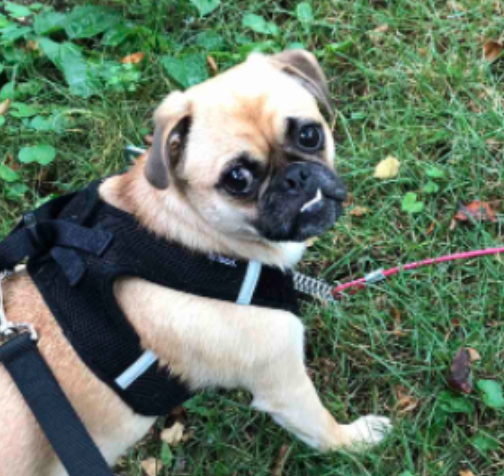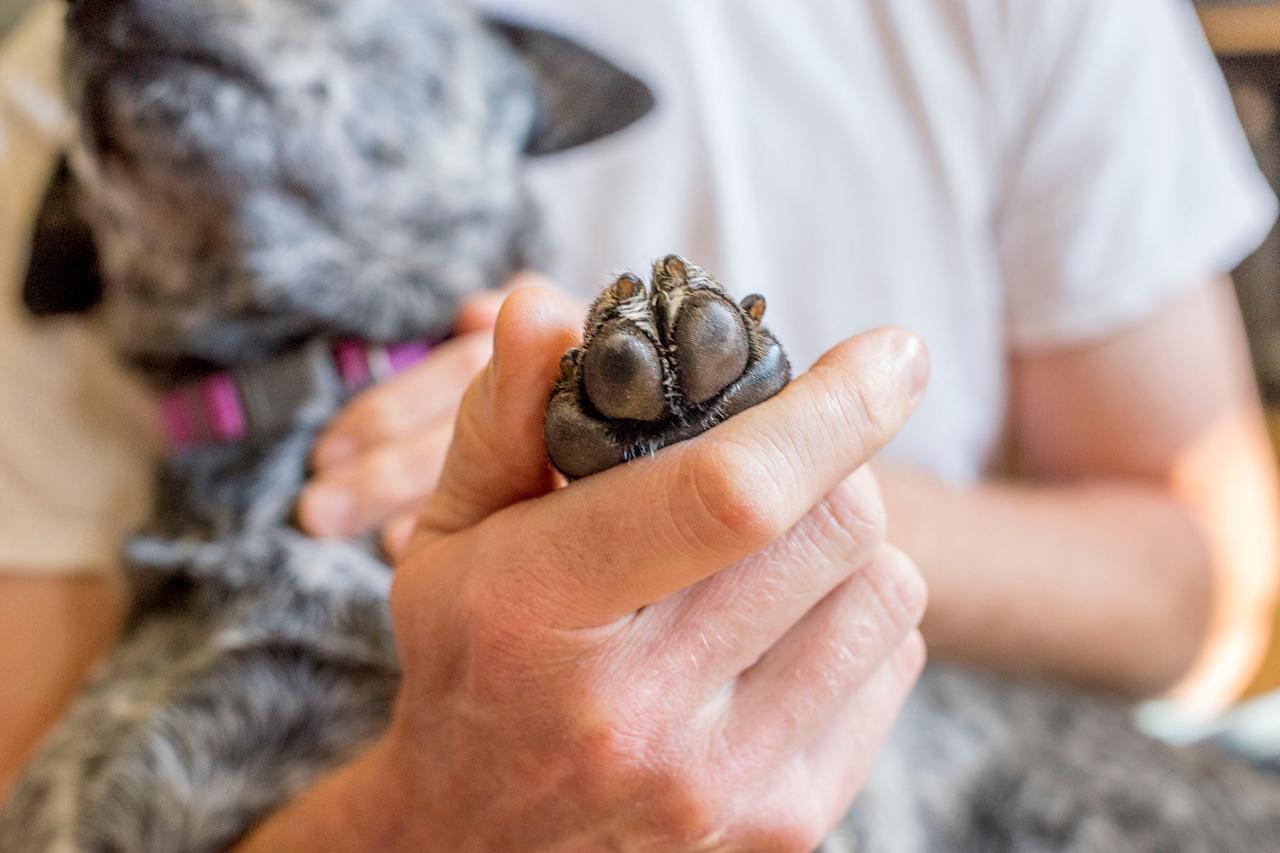Have you ever noticed that some dogs have adorable underbites that give them a permanent expression of goofiness? But have you ever wondered why some dogs have this unique dental feature?
Despite the fact that an underbite may look endearing, sometimes it is actually a dental anomaly that can lead to health issues if not properly addressed.
So today we will delve into the fascinating world of canine dentistry to explore the reasons why some dogs have underbites and what you can do to ensure your furry friend's oral health is in tip-top shape. So, get ready to wag your tail and sink your bottom teeth into this intriguing topic!
What Is an Underbite in a Dog?
An underbite, medically known as a Class III malocclusion or prognathism, is a dental condition in dogs where the lower jaw (mandible) extends farther out than the upper jaw (maxilla), causing the lower teeth to overlap the upper teeth when the mouth is closed. This creates a distinctive facial appearance, often characterized by the lower incisors and sometimes the canine teeth being visible even when the dog's mouth is closed.
Visually, an underbite can be identified by the lower jaw extending out farther than the upper jaw when the dog's mouth is closed. This can be accompanied by an overbite, where the upper jaw extends farther out than the lower jaw, creating a reverse underbite. Some dogs may also have an asymmetrical underbite, where one side of the jaw is more pronounced than the other.
Underbites can vary in severity, ranging from a mild misalignment that may not cause any noticeable problems, to a more pronounced condition that can impact a dog's ability to eat, drink, or properly groom themselves. In some cases, an underbite may also lead to dental issues, such as tooth wear or gum injuries, if left untreated. The causes of underbites in dogs can be genetic, related to breed characteristics, or in some instances, the result of trauma or injury to the dog's jaw.

What Breeds Have Underbites?
Underbites are commonly seen in brachycephalic breeds or breeds with short, "pushed-in" faces. These breeds have a genetic predisposition to develop underbites due to the structure of their skulls and jaws. Some of the dog breeds that are known for having underbites include:
- Boxer
- Bulldog (English and French)
- Pug
- Boston Terrier
- Pekingese
- Shih Tzu
- Lhasa Apso
- Cavalier King Charles Spaniel
- Brussels Griffon
While these breeds are more likely to have underbites, it is important to note that any dog, regardless of breed, can develop an underbite. The prevalence of underbites in other breeds may be less common but can still occur due to genetic factors, developmental issues, or injuries to the jaw.

What Causes Underbites in Dogs?
Underbites in dogs are primarily caused by genetic factors, developmental issues, or injuries. Let's delve deeper into these causes:
Genetic factors with Underbites In Dogs
Some dog breeds have a predisposition to develop underbites due to their genetic makeup. Breeds with brachycephalic features, like Pugs and French Bulldogs, have shorter, "pushed-in" faces, which are more prone to dental misalignments, including underbites. In these breeds, the underbite is often considered a breed characteristic and is passed down from one generation to another.
Developmental issues
An underbite can also develop due to uneven growth rates between the upper and lower jaws. This may result from poor nutrition, a hormone imbalance, or other health-related factors. In some cases, retained baby teeth or crowded adult teeth can also contribute to the development of an underbite, as they may interfere with the proper alignment of the jaws.
Injuries
Trauma or injury to a dog's jaw can lead to an underbite. If a dog suffers a broken or dislocated jaw, the healing process might cause a misalignment of the jaws, resulting in an underbite. Additionally, damage to the jaw's growth plates during the developmental stages can cause irregular growth and lead to an underbite.
While genetics and breed characteristics play a significant role in the development of underbites in dogs, it is essential to monitor a dog's dental health from an early age. Regular dental check-ups with your veterinarian can help identify any potential issues, including underbites, and allow for early intervention if needed.
In some cases, an underbite may not cause any significant health problems and may be considered a cosmetic issue. However, more severe underbites can lead to difficulties in eating, drinking, and grooming, as well as an increased risk of dental issues like tooth wear, gum injuries, or infections. Early detection and proper management of underbites in dogs can help ensure a better quality of life and prevent any potential complications.
Potential Health Problems
An underbite in dogs, depending on its severity, can lead to various health problems. While mild underbites might not cause any issues, moderate to severe underbites can result in complications. Here are some potential health problems associated with underbites in dogs:
Difficulty eating and drinking: Dogs with a significant underbite may find it challenging to pick up food or drink water. This can lead to reduced food intake, malnutrition, or dehydration if not properly managed.
Tooth wear and damage: When the teeth are misaligned, they may not meet correctly, resulting in abnormal wear or damage to the teeth. This can lead to enamel erosion, tooth fractures, and an increased risk of tooth decay or infection.
Gum injuries and infections: An underbite can cause the lower teeth to rub against the upper gums, leading to injuries or irritation. Over time, this can cause inflammation, gum recession, or periodontal disease.
Oral hygiene challenges: An underbite may make it difficult for a dog to groom itself effectively, resulting in food particles and plaque buildup in hard-to-reach areas. This can contribute to bad breath, tartar formation, and an increased risk of dental issues or infections.
Pain and discomfort: A severe underbite can cause pain and discomfort in a dog's mouth, especially when eating or chewing. In some cases, this may lead to a change in behavior or a reluctance to eat.
If you suspect that your dog's underbite is causing health problems, it is essential to consult with a veterinarian. They can assess the severity of the underbite, recommend appropriate treatment options

Do Underbites Get Better? Treatment Options
Underbites in dogs can potentially improve, but the likelihood of spontaneous improvement depends on several factors, such as the severity of the underbite, the dog's age, and the underlying cause.
In puppies, a mild underbite may resolve on its own as the dog grows and the jaws continue to develop. However, this is not guaranteed, and in some cases, the underbite may persist or even worsen as the dog matures.
For adult dogs, underbites generally do not improve without intervention. If the underbite is causing health problems or affecting the dog's quality of life, a veterinarian may recommend various treatment options, such as:
Orthodontic treatment: In some cases, orthodontic appliances can be used to correct a dog's underbite. This treatment is typically reserved for dogs with mild to moderate underbites and may not be suitable for all cases.
Dental extractions: If overcrowding or retained baby teeth contribute to the underbite, a veterinarian may recommend extracting the problematic teeth to alleviate the condition.
Surgery: In severe cases or when the underbite is causing significant health problems, surgical intervention may be necessary. This can involve procedures such as jaw realignment or reshaping to address the underlying issue.
It is important to consult with a veterinarian if you are concerned about your dog's underbite, as they can provide guidance on appropriate treatment options based on your dog's individual needs.
What Should I Do If My Dog Has an Underbite?
If you notice that your dog has an underbite, it is essential to take the following steps to ensure your dog's dental health and overall well-being:
Consult your veterinarian: Schedule an appointment with your veterinarian to have your dog's underbite assessed. They can determine the severity of the condition, evaluate if it is causing any health issues, and discuss potential treatment options if necessary.
Monitor your dog's dental health: Keep a close eye on your dog's dental health by regularly checking their teeth and gums for signs of discomfort, inflammation, or infection. Addressing dental problems early can help prevent more severe issues down the line.
Maintain good oral hygiene: Help your dog maintain good oral hygiene by brushing their teeth regularly with a dog-specific toothpaste and toothbrush. You can also provide dental chews or toys designed to help clean their teeth and gums.
Choose appropriate toys and chews: Provide your dog with appropriate chew toys that will not cause additional damage or strain on their teeth and jaws. Avoid hard objects, like bones or antlers, that can exacerbate dental issues or cause injuries.
Regular veterinary check-ups: Ensure that your dog receives regular veterinary check-ups, including dental examinations. This will allow your veterinarian to monitor your dog's underbite and address any potential problems before they become more serious.
Final Thoughts
In conclusion, underbites in dogs are a dental condition often seen in brachycephalic breeds but can also occur in any dog due to genetic, developmental, or injury-related factors. While mild underbites might not cause any significant health issues, moderate to severe cases can lead to various problems, such as difficulty eating, tooth damage, and gum injuries.
If you suspect your dog has an underbite, it's essential to consult with a veterinarian to assess the condition and determine if any treatment is necessary. Regular dental check-ups and maintaining good oral hygiene are crucial for monitoring and managing your dog's underbite, ensuring a better quality of life for your furry companion.

Get more expert advice on pet-parenting by visiting the Off Leash blog at TryFi.com.
TryFi's The Fi Dog Collar is a must-have for any pet parent, it's a GPS tracking collar that helps you keep tabs on your dog's location, activity, and sleep patterns, and alerts you if they escape your backyard. Try the Fi Dog Collar today!






